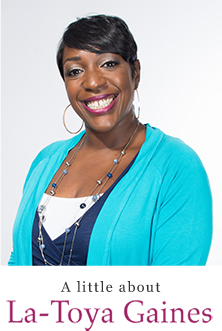5
May
10 frequently asked questions about working with Family Matters Counseling
10 Frequently Asked Questions
Family Matters Counseling and Psychological Services, Inc.
Potential clients typically ask a series of similar questions. To help expedite your search for answers to these questions, I have compiled a list of the most frequently asked questions. Hopefully, the questions you have are answered here. If not, feel free to send me an email with your question(s) and I’ll gladly respond!
Which insurances do you accept? What forms of payment do you accept?
This list changes frequently, so I encourage you to call/email and ask. Currently, I accept the following insurances: Blue Cross Blue Shield, Blue Care Network, HAP, Magellan, BHPI and some Medicaid programs. I also accept cash, check and credit cards for payment.
How often should I attend therapy?
This varies and depends on a few factors including the nature of your concern, how long you have been experiencing symptoms, how intense the symptoms are, and how much they are affecting your daily functioning. Some clients need to be seen weekly while others are seen biweekly. As we move toward ending your treatment, you can expect to come once every 3-4 weeks.

How long will I need therapy?
This also varies depending on the nature of your concern. Establishing treatment goals helps to guide your treatment and your focus in order to reduce the length of treatment. The goal is to give you the tools you need to make the necessary changes in the least amount of time.
How long is each appointment?
Each appointment lasts approximately 50-60 minutes.
What kind of questions will you ask me?
You can expect questions that will help me understand your concerns and how it is affecting you and your relationships. The questions I ask are designed to help me get to know you and understand your experience. Some questions will be personal and might make you uncomfortable. If this happens, please feel free to let me know and we can return to that question when you feel more comfortable.
How can I be sure that what I share with you will remain private?
Psychologists are bound by a set of ethical standards which protect your privacy and confidentiality. Exceptions to this rule include cases of suspected abuse of a child or vulnerable adult, concern that you may harm yourself or someone else, and to facilitate payment from your insurance carrier. Protecting your privacy is not only required by law, it is also required to help establish a trusting relationship where you feel comfortable sharing private information with me.
Will I need to take medication? If yes, for how long?
Again, this varies depending on the nature of your concern. Recommendations for medication evaluation occur on a case by case basis. As the client, it is always your choice to take medication. In consultation with a psychiatrist or nurse practitioner and myself, you will receive information and education about recommended medications.
If my son or daughter is in therapy with you, will I be required to attend as well?
The short answer is yes. When working with children/adolescents I find it helpful to involve the parent(s) in treatment as well. This helps to implement strategies at home more effectively and leads to more long-term change and improvement. Additionally, parents often need support as the family moves through the treatment process. Don’t worry, parents aren’t required to attend each session, but they will be continually involved in their child’s care.
What’s the difference between a psychologist and a psychiatrist?
A psychiatrist has completed medical school and can prescribe medications to treat mental health concerns. A psychologist can conduct psychological testing and assessments. A psychologist uses talk therapy to treat emotional and psychological concerns. A psychologist and psychiatrist may work together to treat a client using a combination of medication management and behavioral interventions to alleviate symptoms.
What level of education do you have and do you hold a license?
I hold the highest level of education one can obtain in psychology, which is a doctorate in clinical psychology (PsyD). I am a licensed psychologist in the state of Michigan.
- admin
- Help Topics
- Categories
- Help Topics (4)
- Uncategorized (3)


